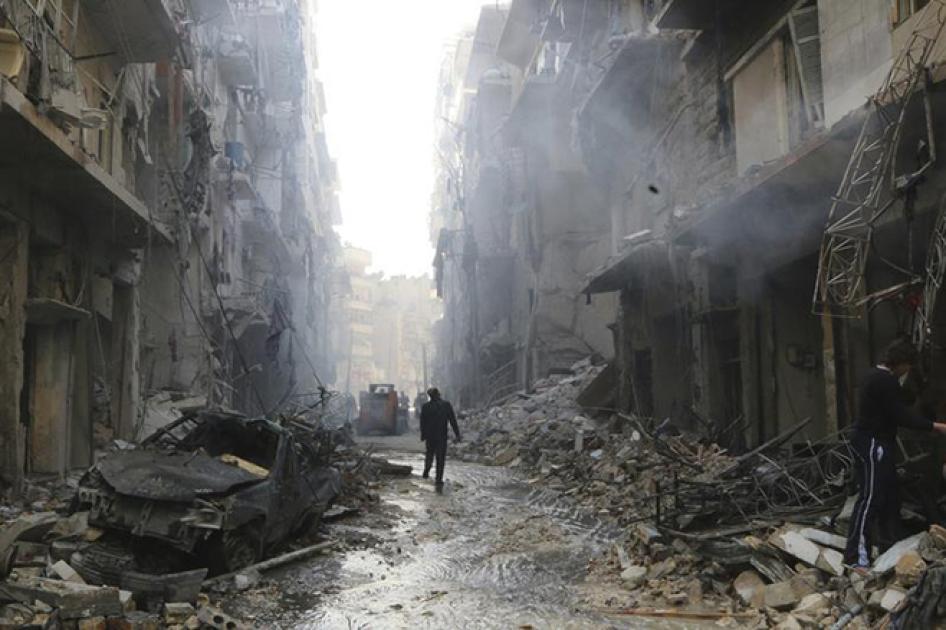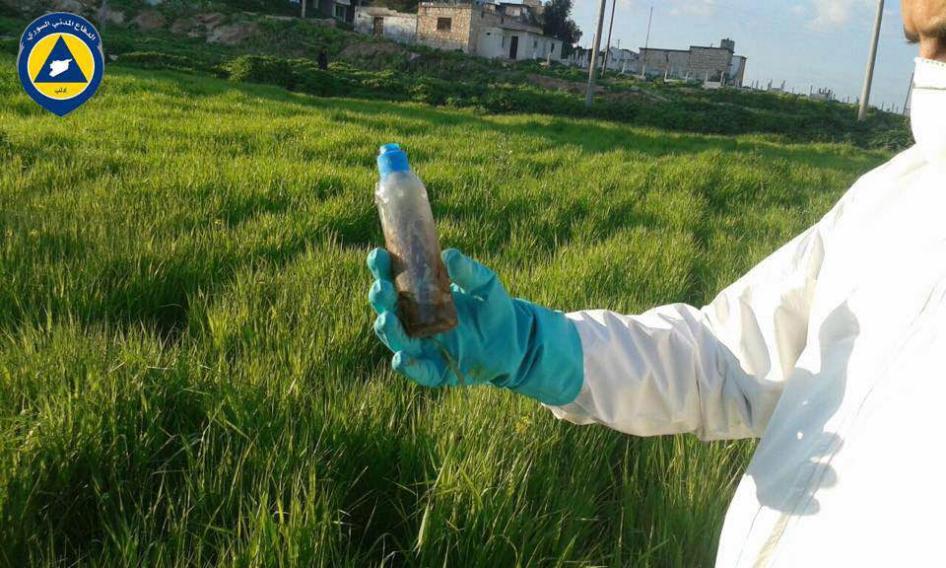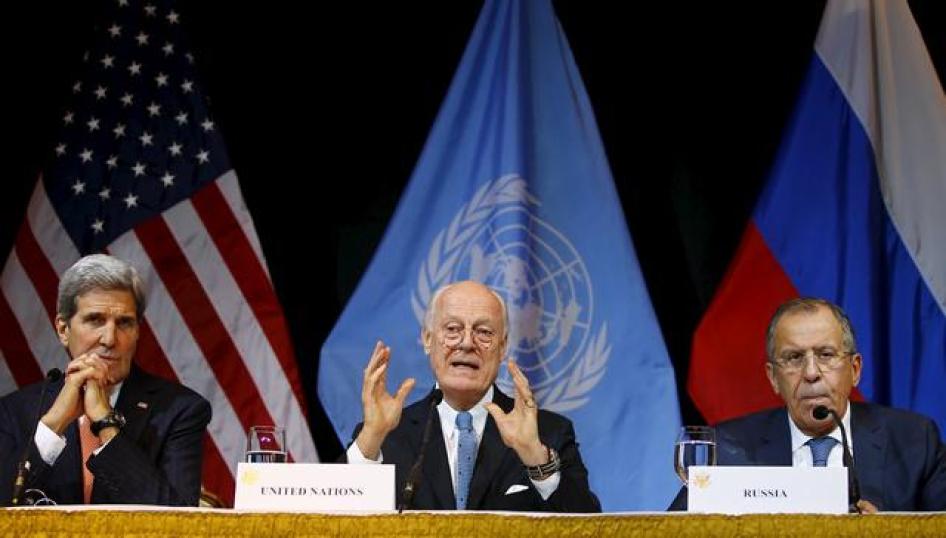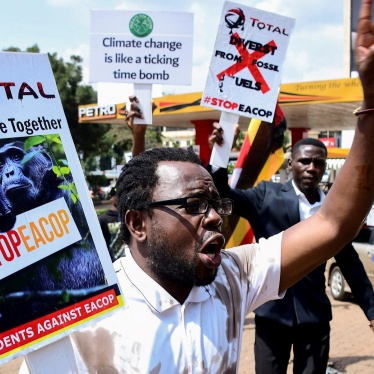As Syrian civilians suffer ceaseless indiscriminate attacks, millions of their compatriots flee their homes, and the self-proclaimed Islamic State (also known as ISIS) extends its killing beyond Syria and Iraq, the only good news coming out of the Middle East's most violent conflict is that the contours of a deal to end it have become clearer. After talks in Vienna in late October, the main foreign actors in Syria’s civil war issued a declaration outlining the principles that could guide some of the conflict’s combatants toward a political settlement. The Vienna declaration calls for secular governance, the eventual defeat of ISIS “and other terrorist groups,” the maintenance of the country’s prewar borders, and the protection of minority groups and state institutions, among other provisions. Yet it fails to address a key issue: how the warring parties might build the trust needed to achieve such goals. As negotiators prepare for a new round of talks in New York in late December or early January, it is essential that they address trust building head-on, above all by demanding an end to the attacks on civilians that are driving Syrians apart and by sidelining the people who have been responsible for them.
Bottom Lines
By now, it should be clear that none of the Syrian combatants are capable of prevailing militarily. Even with Russia’s entry into the war and the backing of Hezbollah and Iranian troops, Syrian President Bashar al-Assad’s forces have not been able to make significant advances against the rebels. Nor have opposition fighters managed to make much of a dent in the government-held corridor between Damascus and the Mediterranean coast. The stalemate should convince all involved of the need for a political compromise.
If it is to have a chance of succeeding, such a compromise must be based not on the wish lists of the warring parties but on their bottom lines. The armed opposition groups and some of their foreign backers would like to see Assad and his chief lieutenants leave office tomorrow. After all, these Syrian officials have been the architects of a brutal strategy of indiscriminate attacks in opposition-held areas, with the apparent aim of depopulating those regions and showing other civilians the consequences of rebel control. Yet apart from those extremist groups seeking to break the country apart, it is in no one’s interest for the Syrian state to implode, as might result from the abrupt departure of Assad without a replacement plan, because that could produce even greater violence. The maintenance of the security forces and a functioning justice system will be especially important, since their collapse would lead to a loss of order that would particularly endanger Syria's many minorities. In other words, a managed transition away from the Assad regime is the best course.
Assad and his chief lieutenants, of course, would like to stay in power indefinitely. But given their countless atrocities—the use of chemical weapons; the repeated barrel bombing of civilian neighborhoods and institutions; the mass detention, torture, and execution of perceived opponents—the opposition has made clear that it will never accept their rule in the long term. Even Russia has hinted that it is not wedded to Assad so long as he leaves through negotiation rather than popular revolt, and Iran has repeated a similar line. Both countries seem more concerned with the friendliness of the regime in Damascus than with who heads it. Assad does represent a powerful faction in the fighting, so there is no avoiding his having a place at the negotiating table, but since his continued rule is untenable, Russia and Iran will need to use their considerable clout to insist on—and enforce—a deal that leads to his departure.
Amnesties and Accountability
So what will happen to Assad if he and his murderous cronies relinquish power under pressure? They will undoubtedly push for amnesty for their crimes, but for a number of reasons, amnesty should not be granted. As a general rule, since the early 1990s, the international community has rightly refused to give its imprimatur to amnesties for mass atrocities; doing so is required by international law, respects the victims, and avoids encouraging further atrocities. Moreover, an amnesty in Syria would be meaningless in some respects. Although Syria is not a current member of the International Criminal Court, any future internationally recognized Syrian government would be empowered to join it and consent to retroactive jurisdiction; should that happen, the court would never accept an amnesty for mass atrocities. Foreign courts exercising universal jurisdiction over alleged Syrian war criminals found on their territory would also be free to ignore an amnesty. Even within Syria, an amnesty could prove ineffective: amnesties for atrocities granted under the pressure of violence have been deemed invalid in such places as Argentina, Chile, and Peru.
That said, most negotiators probably do not expect Assad to deliver himself to custody in The Hague, and few would object if he and his henchmen fled to Moscow or Tehran, leaving for another day the question of whether they could later be apprehended for trial. If they stay in Syria, as Assad has vowed to do, the key would be to reject any attempt to foreclose a future reckoning through a formal amnesty.
Other forms of accountability should be wholly non-negotiable and should begin as soon as possible. For starters, the transitional government should include a truth commission with subpoena power to build a detailed historical record of all sides’ atrocities, to collect evidence for future prosecutions, and to establish a system of compensation for victims and their families. And anyone found through an open, contested, and fair process to have been responsible for significant abuses, including Assad and his coterie, should be barred from public office.
Participatory Governance
If Assad and his circle are precluded from holding power, who would replace them? According to the Vienna declaration, that question would be answered by UN-supervised elections. But credible elections in war-torn Syria, where millions have been displaced, will take considerable time and preparation. Initially, then, it will be necessary to establish a coalition government by agreement, led by figures with credibility among both Syria's Sunni majority and the Alawite and other minorities that have largely entrusted their fate to Assad. Syrians participating in the negotiations would determine the components of this coalition—the Vienna declaration calls for “credible, inclusive, non-sectarian governance”—but the possibility for compromise would increase greatly if the international community demanded that the future leadership of Syria exclude people who have been found responsible for mass atrocities. That position is necessary not only for reasons of accountability but also because it is difficult to imagine any consensus forming around those who have committed such crimes.
As for the structure of such a coalition-led government, given Syria's history of repression at the hands of a strong central government—and the multiplicity of forces controlling various parts of the country—a hefty dose of local self-rule will probably be unavoidable. At least at the outset, that would place a great deal of governmental authority in a collection of fiefdoms rather than a strong, centrally directed state. Such decentralization would have to be accompanied by guarantees that all groups living under these coalition forces, including minorities, can participate in local governance—at a minimum, through formal consultative processes. The aim should be to replace Syria’s rigid top-down system with participatory, negotiated power structures, accompanied by functional security and justice systems. The recent experience of governance in Kurdish-controlled areas and the short-lived but rich experiments of some of the local councils operating in opposition-held areas in 2011 and 2012 offer useful precedents. Given the likely reluctance of opposition groups to give up their weapons, even the fight against ISIS will probably involve a good deal of coordination among decentralized, cooperating forces.
And as for which Syrian opposition groups should be included in a future governing coalition, the key test should be whether they have demonstrated a commitment to avoiding abuses among their own forces and holding accountable those who commit them. Most observers assume that the various member groups of the Free Syrian Army would participate in such a coalition and that Kurdish forces would at least cooperate with it. The largest force whose inclusion in a future coalition is uncertain is Ahrar al-Sham, an Islamist group that has been responsible for atrocities over the course of the war but has presented a more pragmatic façade after September 2014, when most of its leadership was killed in a bomb attack. Whether it can be part of the solution in Syria or is left to fend for itself should depend on a discernible and enduring change in its conduct. Members of both ISIS and the al Qaeda–affiliated Jabhat al-Nusra, meanwhile, would almost certainly be excluded because of their systematic atrocities and the threat they are believed to pose to Western interests. Indeed, a main point of a Syrian deal would be to produce a governing coalition that could fight more effectively against both these extremist groups, if nothing else by supplying more of the ground forces that have so far been in short supply.
A Prerequisite for Peace
Achieving an accord along such lines depends on developing a level of trust among Syria's many warring factions that is currently lacking. It is very difficult, after all, to shake hands with opponents who are killing one’s families and neighbors. That is why US
Secretary of State John Kerry is wrong to prioritize a deal first and atrocities second. Ending the slaughter of civilians—a crime by all sides but, measured by the number of victims, one predominately committed by Syrian government forces—is not a byproduct of a deal but a prerequisite for one. As the principles for an accord are refined, negotiators should not treat the atrocities as a sideshow, as the Vienna declaration did. Instead, they should use their substantial collective influence to insist on an end to them now.
The UN Security Council has occasionally called for an end to atrocities in Syria. But it did little to enforce such demands, especially after Russia began its military operations in Syria at the end of September. Perhaps to avoid being seen as complicit in attacks on civilians, Moscow then pressured the Syrian government to disavow the use of indiscriminate weapons. Damascus reiterated the pledge in a November 9 letter to the UN. Human Rights Watch’s research in Syria, however, shows that the Assad government has not lived up to its promise. That must change, and the governments involved in the negotiations—particularly Russia and Iran, whose support Assad needs to survive—should insist that Assad’s atrocities cease. Ending atrocities would go a long way toward establishing the conditions that might make the Syrian talks succeed.











